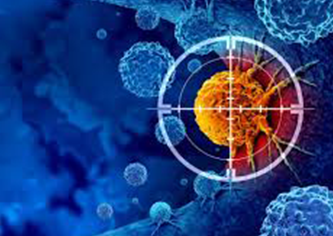
What Is Oncology?
Oncology is the study of cancer. The word comes from the Greek word for tumor or mass. The medical field of oncology covers cancer research, risk and prevention, diagnosis, treatment, and survivorship.
Specialists trained in oncology provide care for people who are at risk for cancer, being treated for cancer, and living with cancer after treatment. Together, these specialists might be called a cancer care team.
There are specialized areas of oncology care, too. Some examples include:
Hematology oncology (blood cancers such as leukemia, lymphoma, and multiple myeloma)
Specific types of cancer (such as breast oncology or gynecology oncology)
Children with cancer (pediatric oncology)
Survivorship (post-treatment)
What does an oncologist do?
An oncologist is a physician (medical doctor) who specializes in cancer. An oncologist leads a cancer care team in the care of people with cancer. Oncologists may:
Diagnose cancer
Make treatment recommendations and create treatment plans
Carry out or oversee treatment
Evaluate how the cancer is responding to treatment
Coordinate a patient’s care with other members of the cancer care team
Provide follow-up care after treatment is completed
Conduct research through clinical trials
Oncology specialties
Many oncologists focus on specialty areas based on how cancer is treated:
Surgical oncologists treat cancer using surgery, including removing the tumor and nearby tissue during an operation. This type of surgeon can also perform certain types of biopsies to help diagnose cancer.
Medical oncologists treat cancer using medication, including chemotherapy, immunotherapy, and targeted therapy.
Radiation oncologists treat cancer using radiation therapy, which is the use of high-energy x-rays or other particles to destroy cancer cells.There are also oncologists who specialize in caring for specific groups of patients or types of cancers. Here are some examples:
Breast oncologists treat breast cancers in men and women.
Geriatric oncologists work with people with cancer who are age 65 and older. Older adults can have additional challenges. Geriatric oncologists specialize in providing the best care for older adults.
Gynecologic oncologists treat cancers in such reproductive organs as the cervix, fallopian tubes, ovaries, uterus, vagina, and vulva.
Hematologist oncologists treat blood cancers, such as leukemia, lymphoma, and myeloma.
Neuro-oncologists treat cancers of the brain, spine, and nervous system.
Pediatric oncologists treat cancer in children and teens. Some types of cancer occur most often in these younger age groups. When these types of cancer occasionally occur in adults, those adult patients may choose to work with a pediatric oncologist.
Thoracic oncologists treat cancers inside the chest area, including the lungs and esophagus.
Urologic oncologists treat cancers in the genitourinary system, such as the bladder, kidneys, penis, prostate gland, and testicles.